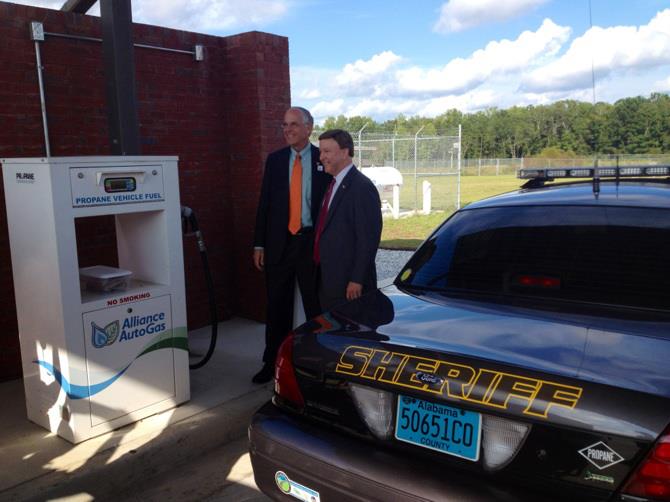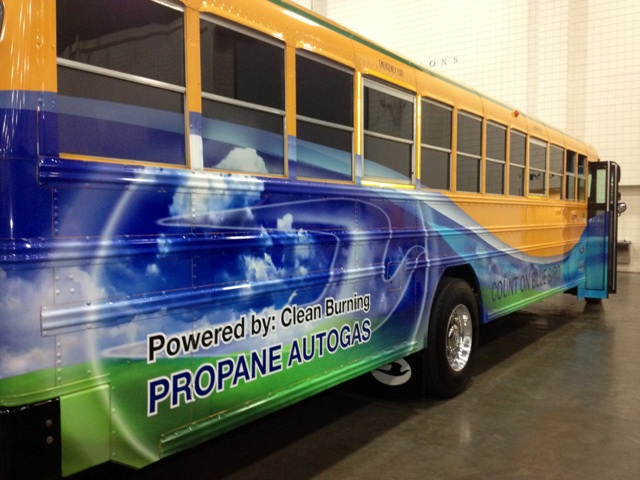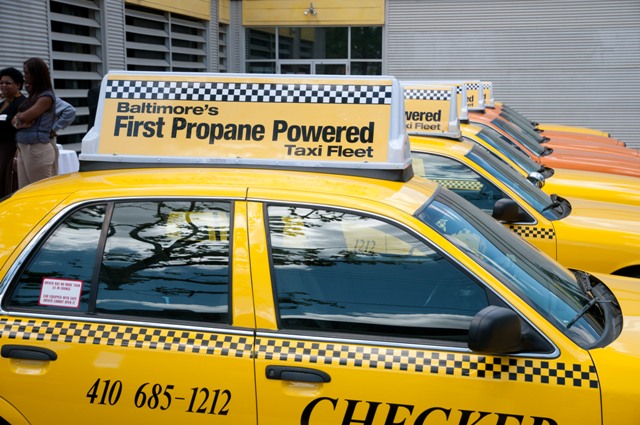The federal government is focusing on achieving higher fuel efficiency vehicle technology by implementing new CAFE standards that will nearly double vehicle fuel economy to 54.5 miles per gallon by the year 2025. While the new standards make exceptions for certain alternative fuel applications, propane autogas vehicles were overlooked. However, there’s already a movement among our nation’s fleets–the small businesses, law enforcement agencies, municipalities and transportation services out there–to adopt this clean, American-made fuel that’s affordable to implement and ready to use, today.
 Propane autogas is gaining momentum with American fleets because it’s the most practical and cost-effective clean fuel on the market. Not only can autogas stations be implemented for a fraction of the expense of other alternative fuel infrastructure, they can also be built quickly and at no upfront cost to fleets. Autogas has averaged $1.45 less per gallon than gasoline over the past five years.
Propane autogas is gaining momentum with American fleets because it’s the most practical and cost-effective clean fuel on the market. Not only can autogas stations be implemented for a fraction of the expense of other alternative fuel infrastructure, they can also be built quickly and at no upfront cost to fleets. Autogas has averaged $1.45 less per gallon than gasoline over the past five years.
Proponents of other alternative fuels lobby the government for support to make their clean fuel technology viable, while thousands of fleet vehicles across the country are already saving money on fuel costs, and achieving a faster ROI, by converting to autogas.
Recent examples of U.S. autogas market growth include:
-
multiple Texas school districts switching their buses to propane autogas through CleanFUEL USA, which recently announced more than 37 new or expanded contracts with Texas ISDs for autogas refueling infrastructure equipment.

-
the Alliance AutoGas network expanding internationally to give Canadian fleets access to its complete autogas vehicle conversion and refueling program.
-
major OEM manufacturer ROUSH CleanTech expanding its presence in America’s automotive capital of Detroit with a new 60,000 square foot facility to support the production of autogas systems for the new Blue Bird Vision school buses. ( CleanFUEL USA recently announced an upgraded new Detroit-area facility, as well.)
-
new propane-autogas-powered fleets making headlines every day like the Sandy Springs, Ga., PD; the Lee County Sheriff’s Office; DHL; the City of Springfield, Ill.; and Veolia Transportation, which is converting 300 taxi cabs to autogas nationwide.

-
states like Mississippi, which is running several public fleet vehicles on autogas, and Indiana, which is converting hundreds of government fleet vehicles to autogas and implementing 115 autogas stations across the state.
Despite autogas being the most cost-effective, easy-to-implement clean fuel, the popularity and government favoritism of CNG will remain an obstacle. According to a recent report from Pike Research, “even though [CNG] fuel is much more difficult (and more expensive) to handle than autogas, it looks as if CNG will attract the majority of the incentives from many governments around the world.” But whether or not natural gas lobbyists achieve continued favoritism among legislators, propane autogas will always have an advantage as the only practical clean fuel that fleets can already affordably adopt.
The bottom line is, the federal government may be ignoring the most viable alternative fuel on the market, but America’s fleets certainly aren’t.



